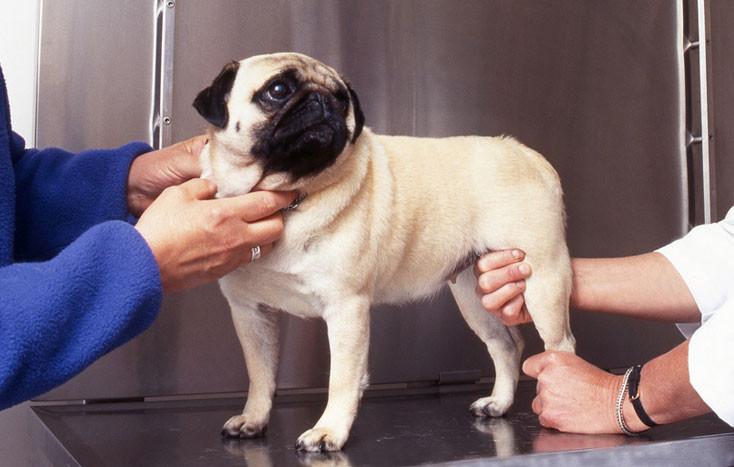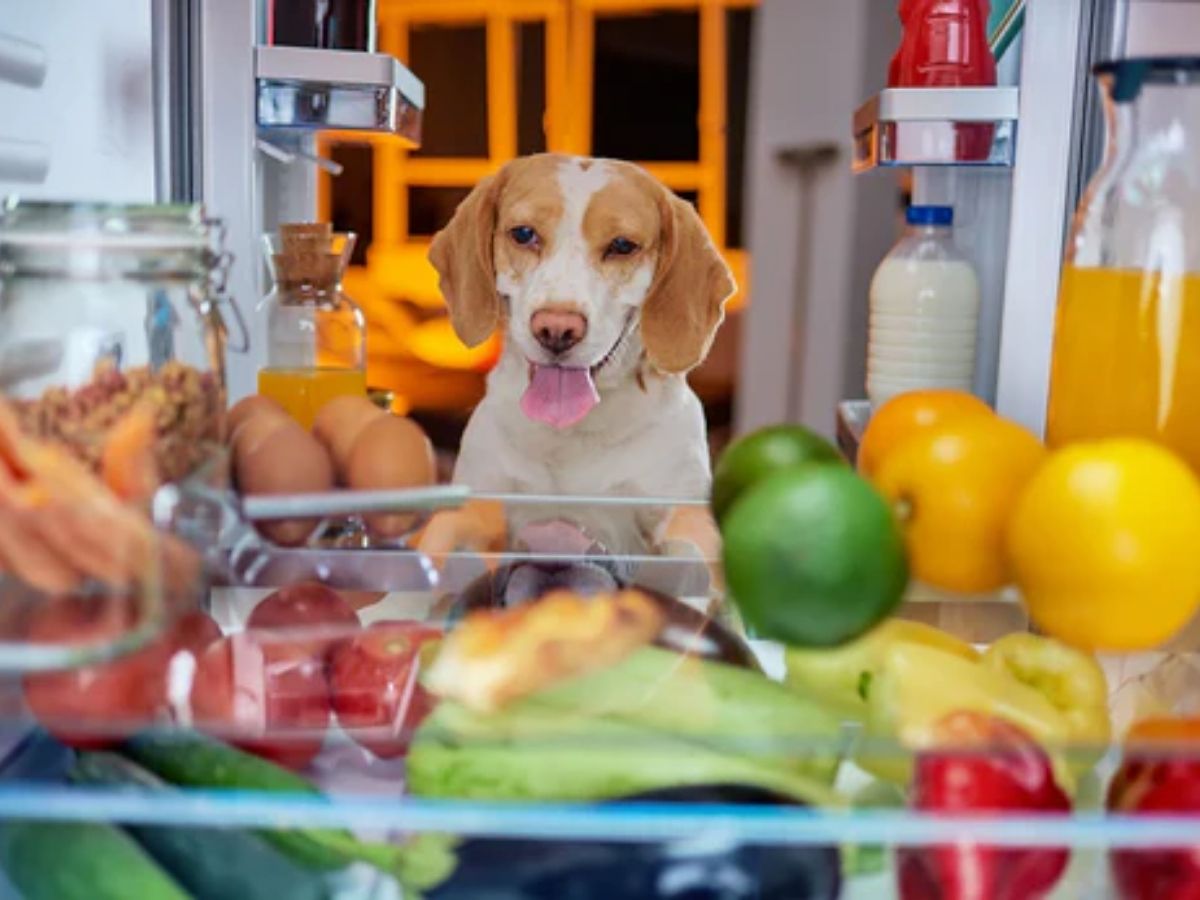
How to Naturally Relieve Glaucoma in Dogs
“The eyes are the mirror of the soul.”
I don't know about you, but when I look deep into my dog's eyes, I see that he's thinking, analyzing, understanding what I'm saying.
Glaucoma is an eye disease that dogs can suffer from. Glaucoma is characterized by increased intraocular pressure. It is a very painful condition that can lead to complications such as vision loss.
Does this disease ring a bell? It's possible, because humans can get glaucoma too. That said, glaucoma in animals is generally more painful, as the pressure in the eye tends to rise to higher levels than in humans!
Does your dog have glaucoma and are you worried about their pain and their quality of life deteriorating? In this article, we present natural solutions and a gentle, holistic approach to help you support your pet and offer them a better quality of life.
- Click to learn more: 👉 Manage your dog's GLAUCOMA with our Natural Product 🐶
Read on to learn more about glaucoma in dogs and its natural remedies. Our natural health experts have over 20 years of experience in the field and are here to help. Gain peace of mind for you and your dog.
So first of all, let's take a closer look at what glaucoma is, how your dog can develop it, and how to detect it.
Glaucoma in dogs
As mentioned above, glaucoma is a disease that affects the eyes and is characterized by an increase in intraocular pressure to unsafe levels for the animal. It is actually a problem with the drainage of aqueous humor, a fluid that is found inside the eye.
Glaucoma is most commonly found in dogs (0.675%) , although it can occur in cats (0.197%). Primary glaucoma (often hereditary) is most commonly found in purebred dogs, while secondary glaucoma (caused by another disease) is more commonly found in cats.
Glaucoma vs. Cataracts in Dogs
You've probably heard of cataracts in dogs. While this condition also affects dogs' eyes, it's quite different. A cataract is actually a partial or complete clouding of the lens. It can be noticed by a white or bluish tint in the center of your dog's eye.
That said, advanced cataracts can cause the development of glaucoma.
What causes glaucoma in dogs?
Heredity, cataracts, inflammation in the eye, or a tumor in the eye are possible causes of glaucoma in dogs.
Some dogs will be unlucky in the genetic lottery and develop glaucoma simply because of the genes passed down from their parents. Certain breeds such as the Cocker Spaniel, Beagle, Basset Hound, and Akita are predisposed to developing glaucoma.
Elevated intraocular pressure can be caused by cataracts. Glaucoma can develop when the lens dislocates, impairing the drainage of aqueous humor.
Inflammation in the eyes can also lead to glaucoma. This inflammation, whether secondary to an infection or uveitis, for example, can impair the drainage of intraocular fluid and lead to increased pressure within the eye.
Finally, if your dog develops a tumor in or near the eye, it is possible that they will develop secondary glaucoma. This tumor can physically press on the eyeball and increase intraocular pressure. The tumor can also directly interfere with the drainage of aqueous humor.
Signs of Glaucoma in Dogs
Symptoms of glaucoma in dogs can vary from one animal to another. Glaucoma can be noticed by a half-closed, uncomfortable eye, or by an enlarged eye in more advanced cases. Therefore, the signs vary depending on the stage of the disease.
Signs of Glaucoma in Dogs: Early Stage
In the early stages of the disease, symptoms can be very subtle and often go unnoticed. Early signs of glaucoma in dogs include:
- Bloodshot eye
- Half-closed or closed eye
- Bluish-white appearance of the cornea
- Dilated pupil
- Redness of the eye
- Increased blinking frequency
- Watering eyes
Signs of Glaucoma in Dogs: Final Stage
As the disease progresses, the signs of glaucoma become more severe and disturbing for the animal. Here are some examples:
- Swelling of the eye, increase in its size
- Vision loss
- Lethargy, loss of appetite (secondary to significant pain)
It is quite rare for a dog to suffer from glaucoma in both eyes at the same time. This is one of the reasons why this disease is often diagnosed late, as a dog can adapt and live very well with vision in only one eye.
Glaucoma in dogs: treatment
There are several approaches to treating glaucoma in dogs. Your veterinarian will discuss conventional treatment, while a holistic veterinarian can discuss natural options for relieving glaucoma in dogs. Below, you'll see our suggestions for home remedies for glaucoma in dogs.
Conventional treatment of glaucoma in dogs
If your dog has glaucoma, your veterinarian will suggest various treatments, such as eye medications in the form of drops or ointments, to try to reduce intraocular pressure. In more advanced cases, surgery may be recommended.
The cost of dog glaucoma surgery
I personally once assisted in surgery for a dog with severe glaucoma. In his case, it was an enucleation surgery, or the removal of the eye, since there was irreversible damage. He suffered from vision loss and constant pain. This surgery was a great relief for him, and he adapted very well to this disability. A true warrior!
Veterinary surgery is always relatively expensive, but sometimes essential for the animal's comfort. Since glaucoma surgeries are often more complex and performed by ophthalmology specialists, the cost can easily reach thousands of dollars.
An enucleation is generally a simpler surgery, therefore faster and therefore likely less expensive. Prices vary from one veterinary clinic to another, but it's a good idea to budget a few thousand dollars for such procedures (or to take out pet insurance from your Fido's early age).
How to prevent glaucoma in dogs?
Your veterinarian will likely suggest diagnostic tests to determine the cause of your dog's glaucoma. In cases of glaucoma secondary to disease, they may suggest giving preventative medication to the unaffected eye, as an underlying cause predisposes both eyes to the development of glaucoma.
That said, a gentle and natural way to prevent glaucoma in dogs is to always make sure you provide your pet with a good, balanced diet and ensure they receive all the nutrients and vitamins necessary for their eyes to function properly.
Dog Glaucoma: Home Remedies
If you prefer a gentler approach, here are our recommendations for natural treatments for glaucoma in dogs. We suggest spinach, carrots, vitamin C, magnesium, and CBD oil. Of course, it's always advisable to consult your veterinarian to confirm that these natural solutions are appropriate for your pooch.
Spinach
Spinach doesn't just give the beloved Popeye strength! It contains high levels of carotenoids, which help support and strengthen eye tissue. This helps prevent eye degeneration and is therefore beneficial in cases of glaucoma! Adding fresh pieces of spinach to your dog's meal is a great way to incorporate it into your dog's diet.
Carrots
Along the same lines, carrots contain a type of carotenoid that's very valuable for eye health: beta-carotene. This is probably why we tell kids to eat carrots for beautiful eyes! Beta-carotene is a precursor to vitamin A and plays an important role in maintaining the integrity of cells in the eyes. Personally, I use small carrot slices as treats for my dog!
Vitamin C
Vitamin C helps control the presence of free radicals in the body and thus helps reduce inflammation . This is why vitamin C can be an ally in cases of glaucoma. Dogs synthesize vitamin C naturally in their bodies, but a deficiency in this vitamin can lead to health consequences. However, adding a vitamin C supplement to your dog's diet should be evaluated by your veterinarian to ensure that it does not upset their body's balance.
Magnesium
Magnesium can help relieve glaucoma in your dog because it affects blood circulation by relaxing the walls of blood vessels. Since glaucoma is characterized by increased pressure in the eye, magnesium may have an impact on this condition due to this characteristic.
CBD oil
The use of CBD oil is increasingly popular, both in humans and animals, for pain management, among other purposes. While not directly treating glaucoma, this product may help relieve the discomfort caused by this condition.
Be careful, some CBD oils sold on the market may contain traces of THC (toxic to dogs). Therefore, you must ensure that the product you find is safe for animals.
Like all natural products, the latter mentioned above have their limitations. If your dog has lost his sight due to glaucoma, it's highly unlikely that adding spinach or carrots will help him regain his sight, as you might expect. However, these are good habits to adopt to slow the progression of such a disease and thus increase your pet's quality of life.
Homeopathy: Our natural GLAUCOMA product
We've discussed some natural solutions that can help your dog maintain good eye health. Now let's talk about our homeopathic GLAUCOMA product, designed to promote healthy eye function in your pet.
Many pet parents have enjoyed using GLAUCOMA for their pets suffering from this disease. It is a high-quality natural product that can be used alone or in combination with so-called conventional treatments.
We understand that you may feel sad or worried about such a diagnosis in your faithful companion. That's why we developed our line of holistic products, with the aim of helping your pets maintain a good quality of life, without having to use chemical compounds.
When to euthanize a dog with glaucoma?
The decision to euthanize is unique to each individual and is always made on a case-by-case basis. Therefore, it is impossible for us to tell you when the time is right. That said, if your dog is in pain and their quality of life is compromised, we recommend visiting your veterinarian, who will be there to advise you during these difficult times.
Unfortunately, despite adequate treatment, primary glaucoma is usually incurable and once vision is lost, it cannot be regained. Glaucoma secondary to another disease will have a different prognosis, depending on its underlying cause and the treatment undertaken.
In conclusion
We're sorry your dog has been diagnosed with glaucoma, especially if they're in pain. Is your dog living with glaucoma? We're curious to hear how your pooch has adapted to this condition and what treatments have helped them feel better. Leave your comment in the section below to share your experience with glaucoma with our other readers.
You can fill out this form and get a health advice session with one of our natural pet health experts.




















Leave a comment
This site is protected by hCaptcha and the hCaptcha Privacy Policy and Terms of Service apply.